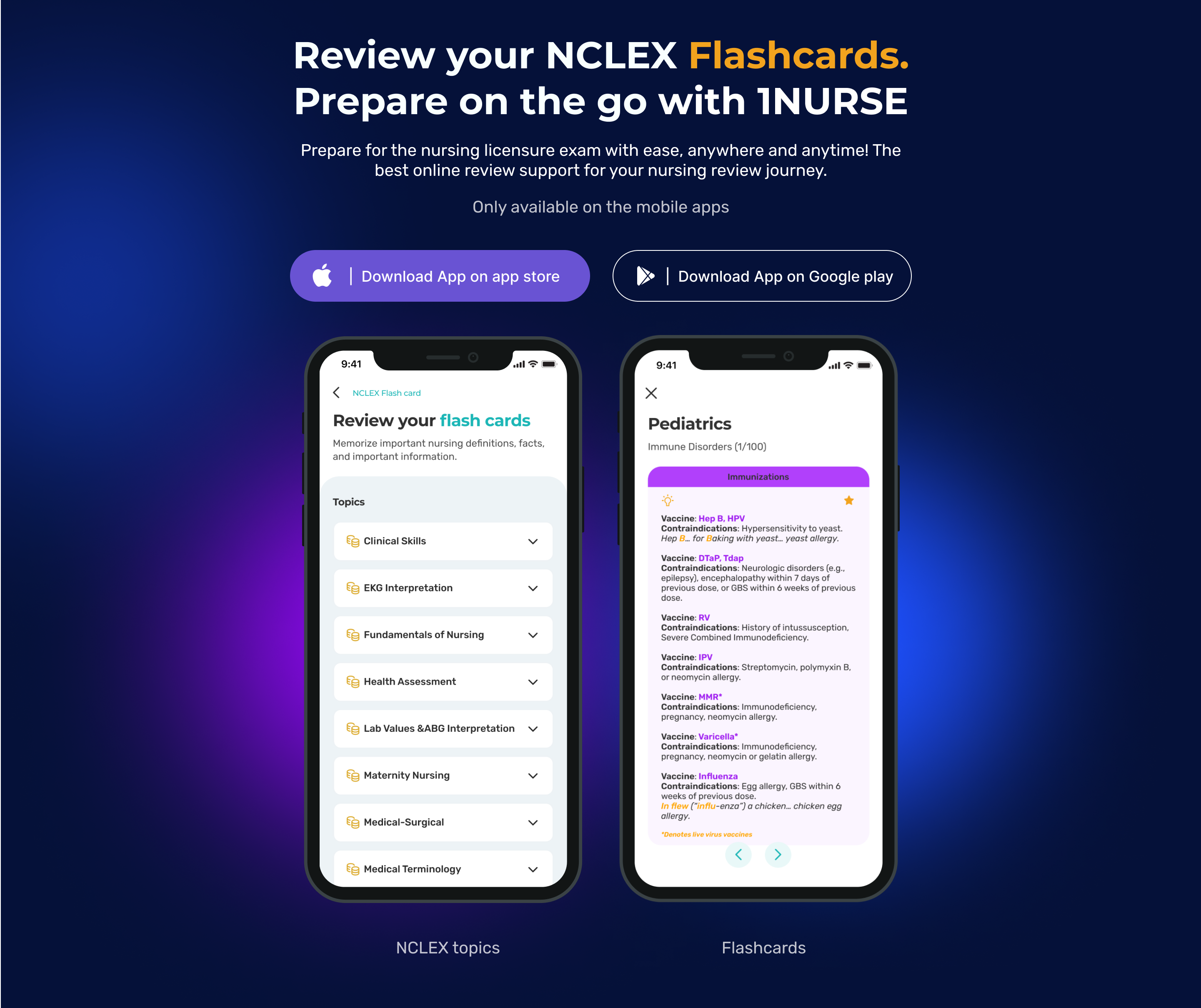The field of nursing is an honorable and challenging occupation, necessitating qualities such as compassion, dedication, and resilience While caring for others, nurses often find themselves neglecting their own well-being, leading to burnout. Burnout not only affects the individual nurse but also compromises patient care. In this article, we will explore the importance of maintaining well-being as a nurse and discuss practical strategies to prevent burnout.
Understanding Burnout
Burnout is a state of physical, emotional, and mental exhaustion caused by prolonged stress. It is prevalent in healthcare settings due to the demanding nature of the profession, high patient volumes, and the emotional toll of caring for those in need. Nurses are particularly susceptible to burnout as they juggle long hours, challenging patient cases, and interpersonal dynamics within the healthcare team.
Recognizing the Signs
To maintain well-being, it's crucial for nurses to recognize the signs of burnout early on. Common symptoms include fatigue, irritability, decreased job satisfaction, feelings of helplessness, and a decline in personal and professional relationships. When these signs are ignored, burnout can lead to serious consequences, such as increased medical errors, decreased productivity, and a higher likelihood of leaving the nursing profession altogether.
Strategies for Maintaining Well-Being
Prioritize Self-Care:
- Adequate Sleep: Quality sleep is fundamental for cognitive function, emotional resilience, and physical well-being. Establish a consistent sleep schedule and create a conducive sleep environment.
- Balanced Diet: Nutrition plays a key role in maintaining energy levels and overall health. Focus on a well-balanced diet with a variety of nutrient-rich foods to support your body and mind.
- Regular Exercise: Physical activity is a powerful stress reducer. Integrate consistent physical activity into your daily schedule, whether through activities like walking, jogging, yoga, or any exercise that brings you enjoyment
Set Realistic Boundaries:
- Work-Life Balance: Recognize the importance of maintaining a healthy balance between work and personal life. Set clear boundaries regarding your availability outside of work hours and communicate them effectively.
- Effective Time Management: Prioritize tasks and organize your workload. Learn to distinguish between urgent and important tasks, and delegate when appropriate to avoid becoming overwhelmed.
Take Breaks:
- Restorative Breaks: Utilize breaks to relax and recharge. Step away from your workspace, engage in activities that bring joy, and avoid using breaks to catch up on work-related tasks.
- Lunch Breaks: Prioritize your lunch break as a time to nourish your body and mind. Step outside if possible, connect with colleagues, or engage in activities that promote relaxation.
Cultivate Supportive Relationships:
- Collegial Connections: Foster a supportive environment among colleagues. Share experiences, challenges, and successes to build a sense of camaraderie.
- Mentorship: Seek guidance from experienced nurses who can provide valuable insights and support your professional development.
Practice Mindfulness and Relaxation Techniques:
- Mindful Practices: Incorporate mindfulness into your routine through practices such as deep breathing, meditation, or guided imagery. These techniques can help manage stress and enhance emotional well-being.
- Relaxation Rituals: Develop relaxation rituals before or after work, such as listening to calming music, taking a few minutes of quiet reflection, or engaging in a brief mindfulness exercise.
Engage in Continuous Learning:
- Professional Growth: Pursue ongoing education and professional development opportunities to stay motivated and engaged in your career.
- Curiosity and Learning: Cultivate a mindset of continuous learning. Stay curious about advancements in your field and explore new areas of interest within healthcare.
Seek Emotional Support:
- EAP Services: Employee Assistance Programs offer confidential counseling services. Take advantage of these resources to address emotional challenges and seek professional support when needed.
- Personal Support System: Build a network of trusted friends and family members who can provide emotional support and understanding.
Celebrate Achievements:
- Acknowledgment: Acknowledge and celebrate both small and significant achievements. Regularly reflect on your accomplishments to maintain a positive outlook.
- Goal Setting: Set realistic goals for personal and professional growth. Break down larger goals into smaller, achievable steps to track your progress.
Rotate Shifts Mindfully:
- Transparent Communication: Engage in open and transparent communication with supervisors regarding shift preferences. Emphasize the importance of maintaining well-being when discussing scheduling options.
- Impact of Irregular Shifts: Acknowledge the impact of irregular shifts on circadian rhythms and overall health. Express concerns about potential health implications associated with prolonged exposure to certain shift rotations.
- Constructive Feedback:Provide constructive feedback on experiences with different shift rotations. Collaboratively discuss and evaluate the strengths and weaknesses of existing scheduling policies.
- Advocacy for Alternatives:Actively propose alternative schedules that better align with individual needs.Work with supervisors to find solutions that prioritize both the institution's requirements and the well-being of nursing staff.
- Consideration of Individual Circumstances:Communicate personal obligations outside of work that may influence shift preferences.Share any health conditions or ongoing medical treatments that require accommodations in shift assignments.
- Advancement of Workplace Policies:Advocate for the implementation of flexible scheduling policies within the healthcare institution.Contribute to the development of rotational planning systems that consider input from nurses and promote job satisfaction.
Identify your Stressors:
- To proactively address the onset of burnout, it is beneficial to undertake a reflective exercise by cataloging the specific stressors contributing to your feelings of exhaustion. This involves attentively observing your emotions and mood fluctuations during work, and identifying potential triggers.
- Take note of interactions with coworkers or patients, evaluate the impact of sleep deprivation, assess your workload, and recognize the inherent stress of potentially being exposed to infectious diseases daily. Developing a keen mental awareness of these stressors empowers you to preemptively recognize and navigate anxious situations, preventing them from significantly impacting your emotional well-being.
Take Time Off When Needed:
- Vacation Days: Recognize the importance of taking planned vacation days to rest and rejuvenate. Disconnect from work-related communication during your time off.
- Sick Leave: Use sick leave when necessary to prioritize your health and avoid exacerbating physical and mental exhaustion.
Attend to Emotional Health:
- Reflection: Acknowledge and process emotions related to patient care. Regular reflection can help prevent emotional exhaustion by providing an outlet for processing challenging situations.
- Professional Counseling: Consider seeking counseling or therapy to address emotional challenges and promote mental well-being.
Engage in Hobbies and Leisure Activities:
- Work-Life Integration: Make time for activities outside of work that bring joy and relaxation. Engage in hobbies or leisure activities that provide a sense of fulfillment and balance.
By embracing these tips, nurses can build a robust foundation for their well-being, fostering resilience and preventing burnout. Consistent practice of these strategies contributes not only to the individual nurse's health but also to the overall strength and effectiveness of the healthcare team. Prioritizing self-care is an investment in sustained professional satisfaction and the delivery of high-quality patient care.














